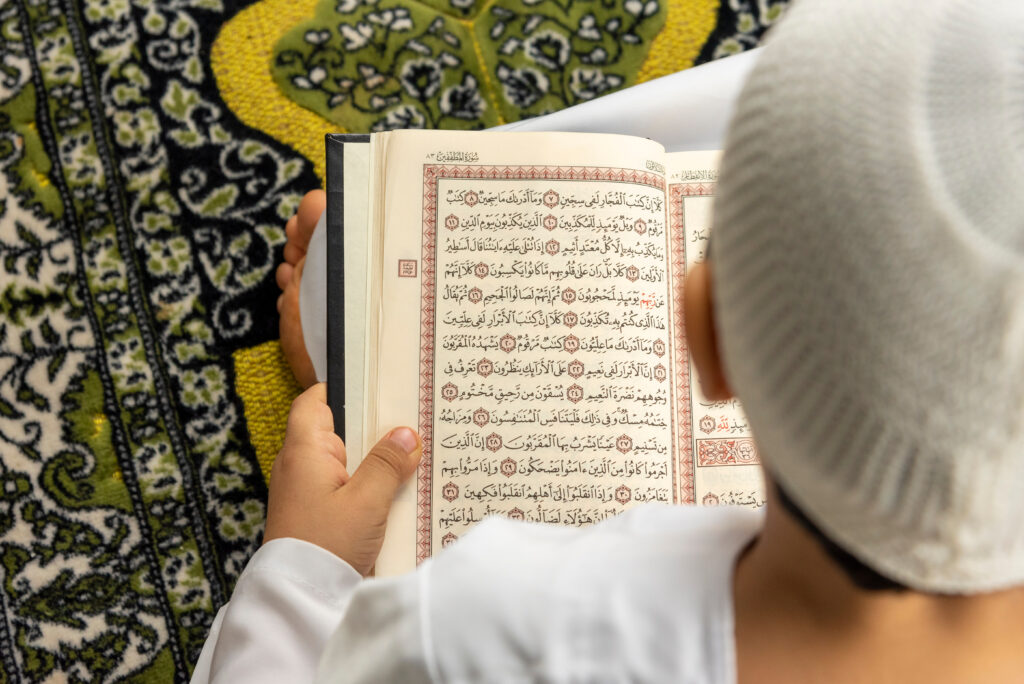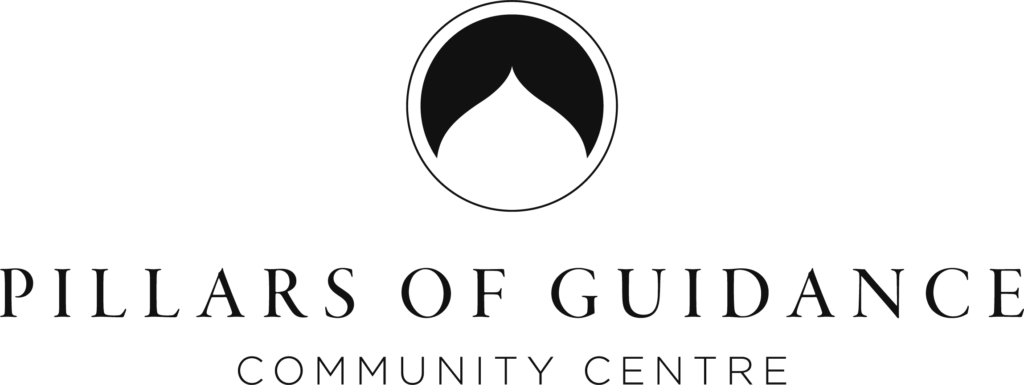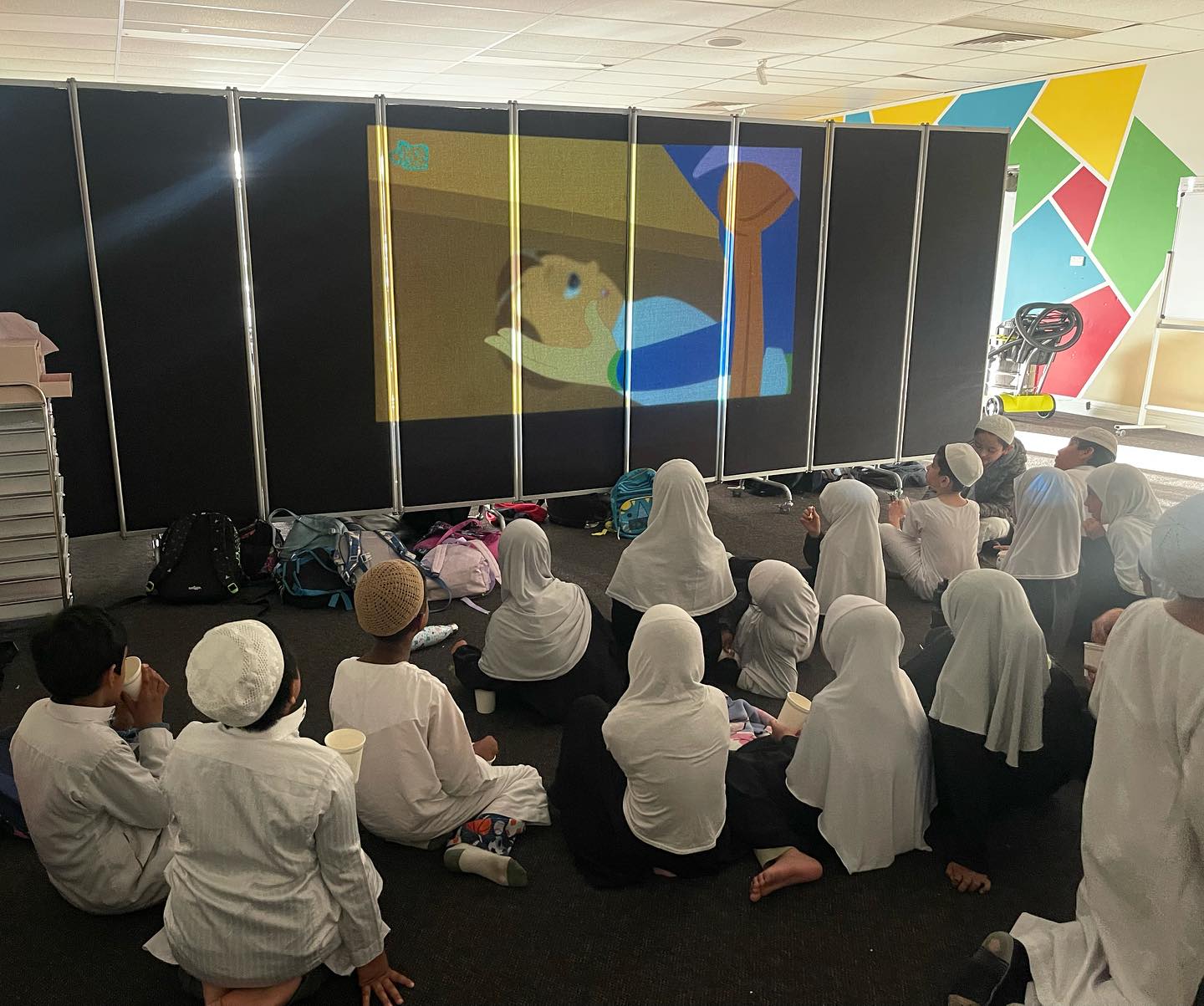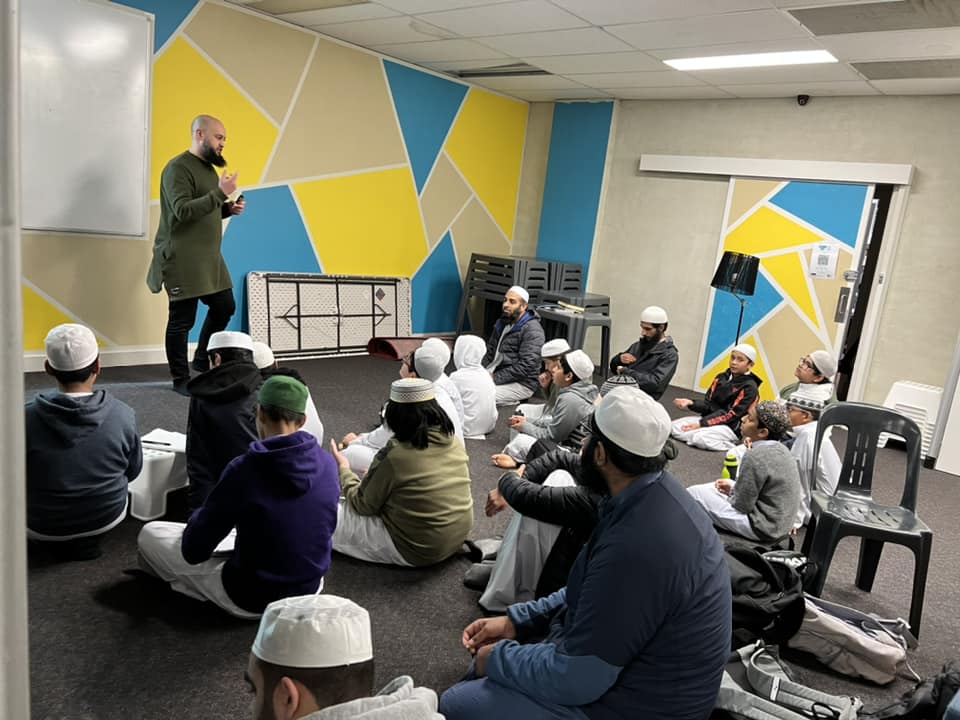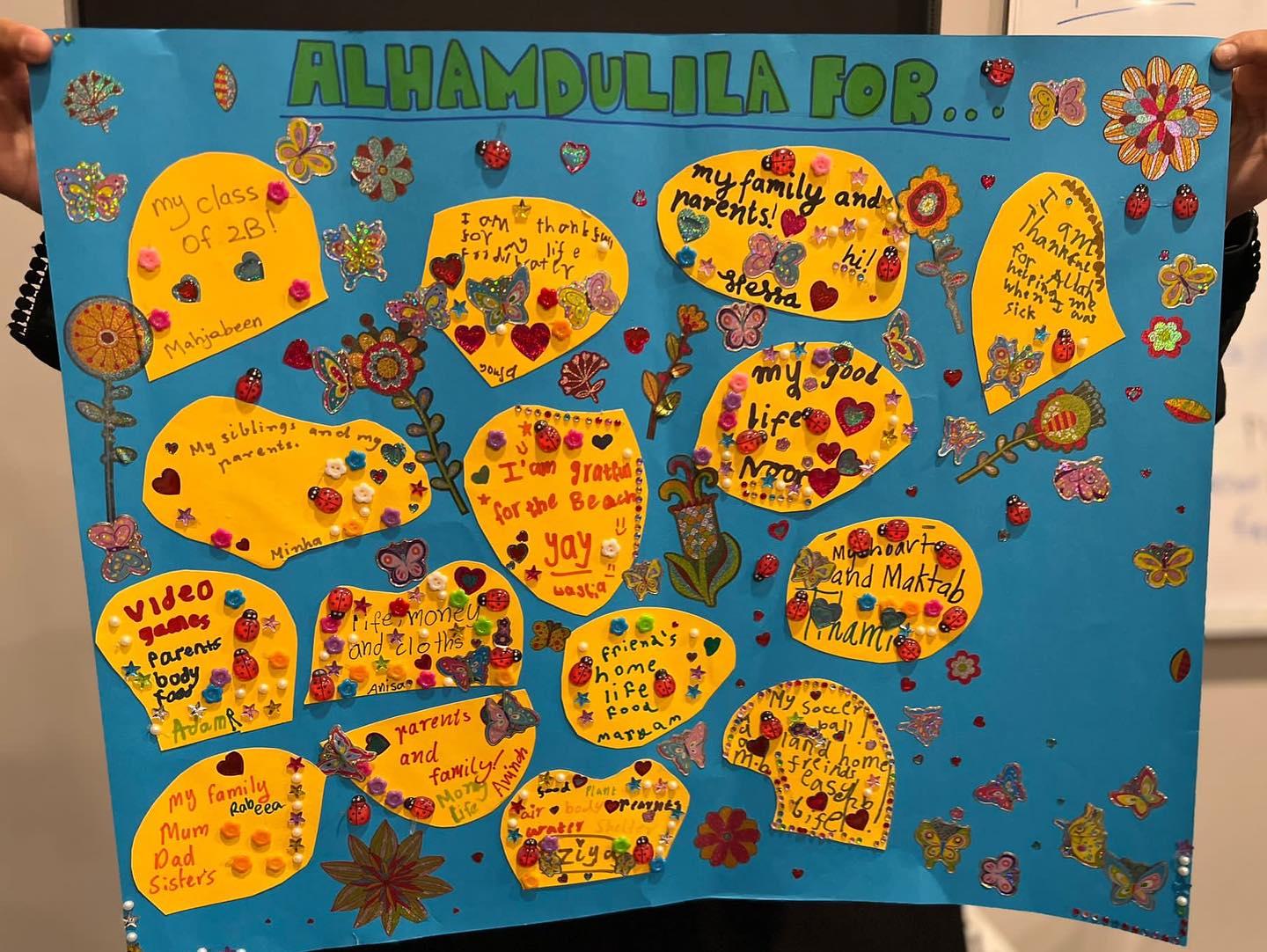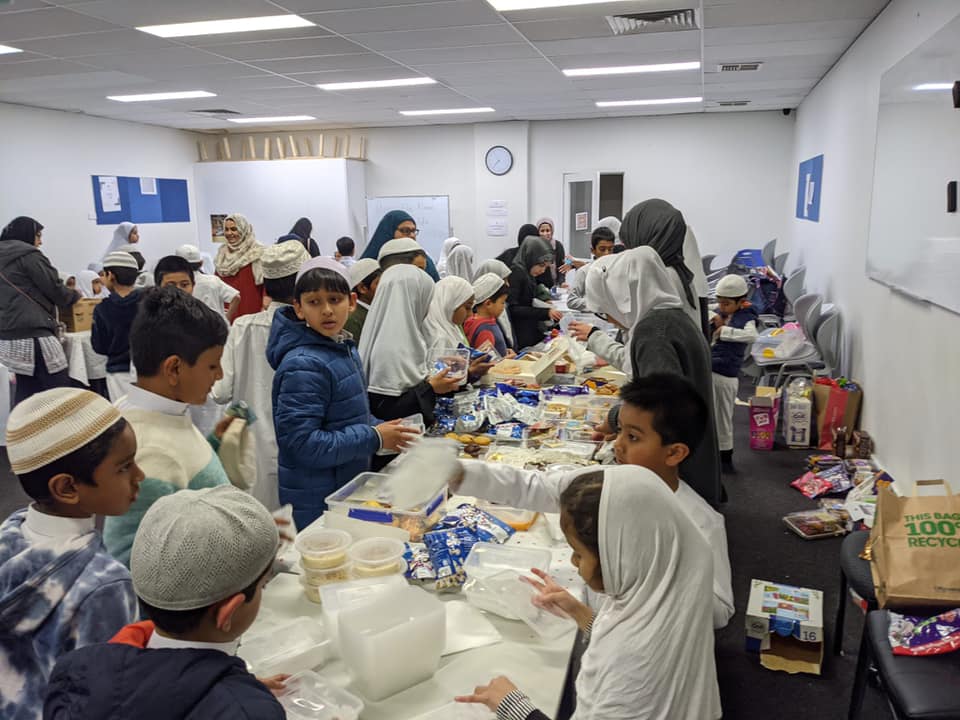Maktab
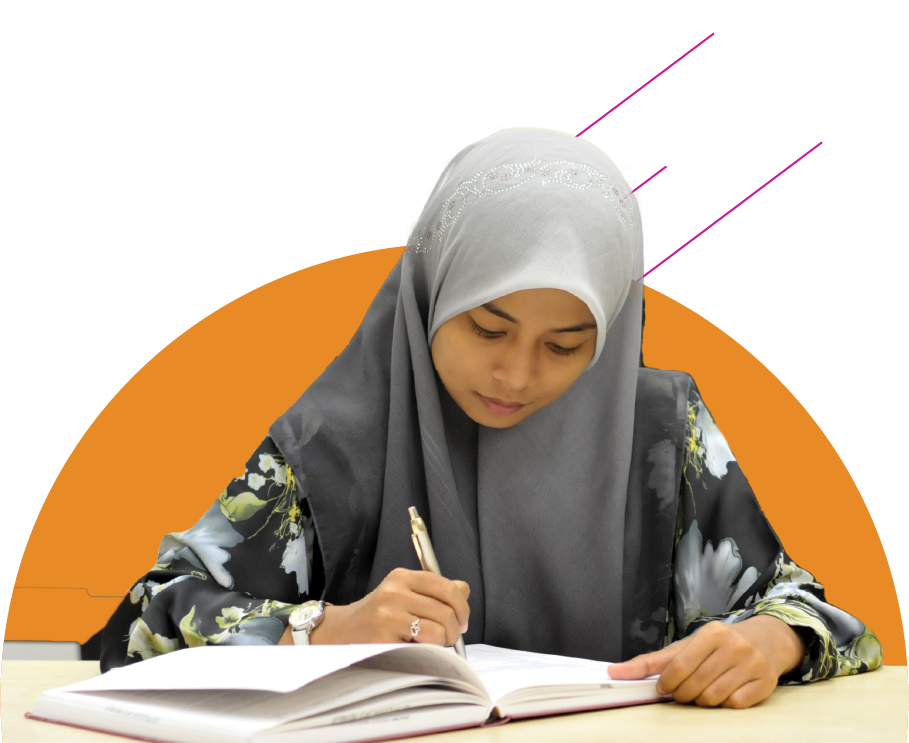
What is a Maktab?
Maktabs, also referred to as Kuttabs, serve as institutions for the daily Quranic and Islamic education of Muslim children. They play a crucial role in safeguarding and nurturing our faith, fostering a profound awareness of moral distinctions and religious guidelines. Maktabs instill a sense of belonging to the broader Ummah, shaping a distinct Muslim identity and shielding children from hypocrisy and disbelief.
Below is an abridged speech by the most senior sheikh of hadeeth in England Maulana Yusuf Motala (May Allah preserve him) on the origins of maktab education.
Read (O Muhammad)! In the name of your Lord, Who has created (all that exists) Has created man from a clot (a piece of thick coagulated blood). Read! And your Lord is the most Generous, Who has taught (the writing) by the pen. Has taught man that which he knew not.
(Surah Al ‘Alaq 1-5)
The aforementioned Quranic verses constitute the opening lines of Surah Alaq, representing the initial revelations from Allah to His cherished Prophet. In these verses, Allah instructs, “Read! (O Muhammad) in the name of your Lord, who has created.” Additionally, to underscore this point, He declares, “Has created Insaan (the human being).” The subsequent verses repeatedly emphasize the command to ‘iqra’ (read).
In these foundational verses, Allah introduces the concepts of qir‘aat (recitation), taleem (learning), and ta‘allum (teaching). The conclusion of the first revelation emphasizes, “Has taught man that which he knew not,” thereby highlighting the paramount importance of knowledge, which constitutes the primary objective of the Maktab.
The inclusion of qir‘aat and ilm in the opening verses serves as a lesson to Muslims. It underscores that the preservation of deen (religion), iman (faith), and haq (truth), as presented uniquely by the Prophet through wahi (revelation) and sunnah (tradition), is achievable only through the pursuit of knowledge. Neglecting knowledge leads to a pitiful state, even if Islam and Muslims persist. Wherever knowledge thrives, our faith remains in its original purity.
Hence, the verse, “Read! in the name of your Lord who has created,” stands as our very first lesson. The teacher is Allah, Glorified and Great. Allah imparts wisdom to His beloved Prophet, who, in turn, assumes the role of an educator. The recipient of this divine knowledge is Khadijah tul’ Kubra. When the Noble Prophet returned from the cave of Hira and shared his apprehensions with our mother, he also recited to her the verses revealed to him.
Origins of Maktab
Many are familiar with the incident that led to Hadhrat Umar Radhiallahu Anhu’s conversion to Islam. In summary, he intended to harm the Holy Prophet Sallallahu Alaihi Wasallam but was diverted by the news that his own sister had embraced Islam. This led to a confrontation at his sister’s house, the very first Maktab in Makkah Mukarramah. Here, Umar Radhiallahu Anhu’s sister and brother-in-law were studying the Quran under the guidance of their teacher, Khabbab Ibn Aratt Radhiallahu Anhu. Umar Radhiallahu Anhu, upon seeing the parchments and hearing verses, underwent a transformation and embraced Islam.
As the Muslim community grew, a second Maktab was established at Darul Arqam near Mount Safa. Approximately forty Sahabah Radhiallahu Anhum resided here permanently, and the Holy Prophet Sallallahu Alaihi Wasallam spent extended periods teaching the Quran and other religious instructions.
The third Maktab was set up in the Sha’ab of Abu Taalib during the Prophet’s exile. Here, the Prophet Sallallahu Alaihi Wasallam taught the Quran to his family and those who secretly visited.
Upon migrating to Madinah, efforts to establish Maktabs began even before the Prophet’s arrival. Mus’ab bin Umair Radhiallahu Anhu and Abdullah Ibn Umme Maktoom Radhiallahu Anhu were sent to teach the Quran in Madinah. The second Maktab was set up by Rafe’ ibn Malik Radhiallahu Anhu, and the third was in Masjid Quba, where Salim Radhiallahu Anhu served as the Imam and Quran teacher.
During the Hijrah, the Prophet continued establishing Maktabs. In Ghumaim, eighty households embraced Islam, and the Prophet initiated the Taleem by teaching Surah Maryam. Buraidah Aslami Radhiallahu Anhu was appointed as their teacher, emphasizing the significance of Makatib in preserving and transmitting the Quran.
The manner of Taleem in Maktabs mirrors the early days of Islam, where Sahabah Radhiallahu Anhum learned directly from the Holy Prophet Sallallahu Alaihi Wasallam. This method remains crucial for preserving our Deen, ensuring the Islamic identity of future generations. The foundation laid by these Maktabs has played a vital role in maintaining the purity of our faith.
Importance of maktabs in this era
Combat Ignorance
To counteract the prevalent ignorance within the Muslim community today, significant efforts are underway in the realm of religious education. Makatib have become more vital than ever, playing a crucial role in preserving the faith of thousands and combatting the growing threat of apostasy. The impact of these Makatib in nurturing the seeds of faith is invaluable.
Overcome Challenges
The Muslim community faces challenges, notably a silent battle for the hearts and minds of the younger generation, influenced by secular trends, deceptive media, and misleading online content. This subtle influence can lead Muslim children to lose their Islamic identity, even when seeking a return to Deen.
Safeguarding Children and Instilling Awareness
Ensuring our children's well-being involves fostering their awareness of Allah and imparting a strong understanding of the fundamental principles of Deen. The Qur'an emphasizes Allah's protection of its message, ensuring its preservation on earth. Despite ongoing attempts to undermine Islam, Allah has steadfastly maintained the purity of His Deen throughout history.
Renewed Intensity Against Islam
In the present era, there is a renewed intensity among the forces opposing Islam, attempting to eradicate it. Despite this, there is no room for despair or fear. What is required is a sincere, dedicated, and determined effort on our part. We must present ourselves and implore Allah Ta’ala to accept us as instruments for the protection of His Deen. The ultimate protection of the Deen lies with Allah Ta’ala alone, and it will be our good fortune if we are accepted.
Importance of maktabs in Australia
In Australia, it is crucial to establish more Maktabs to meet the urgent need for elementary religious education within the Muslim community. For many young Muslims, the Maktab serves as their initial exposure to structured Islamic learning. Therefore, ensuring that this early experience is positive, engaging, and marks a joyful entry into formal Islamic education is of utmost importance.
Despite the progress that PGCC has made, there is still a long journey ahead. While expressing gratitude to Allah Ta’ala for what has been accomplished, it is essential to remain focused on the goals that are yet to be achieved. May Allah Ta’ala facilitate the path forward and accept the efforts of all involved in this noble service to Deen, making it an ongoing charity for everyone. Aameen.
Frequently Asked Questions
Maktab education is vital for preserving and nurturing the Islamic faith in children. It instills a deep awareness of moral distinctions, guides them in distinguishing right from wrong, and fosters a sense of belonging to the broader Muslim community (Ummah).
Maktabs play a crucial role in forging a distinct Muslim identity by imparting knowledge of the Quran and Islamic teachings. They help insulate children from hypocrisy and disbelief.
Regarding the Term “Maktab”: The consensus among scholars is that a Maktab is a designated place for study.
Regarding the Term “Kuttaab”: There exists a difference of opinion regarding Kuttaab. Some assert it refers to the place of study, while others argue it pertains to the children studying in the Maktab. Those who interpret it as the children consider the use of the word “place” as an error.
Contemporary Usage: In modern Arabic, “Maktab” commonly denotes a desk, whereas “Kuttab” is often used to describe Quranic schools in the Arab world. Notably, “Maktab” has gained broader usage in non-Arab Muslim countries and is also synonymous with primary schools in many Muslim nations.
Abu Ali Shaqraan Bin Ali Hamadaani Rahimahullah (passed away in 168 H) was renowned as a jurist in Tunisia and gained recognition as a devout worshipper.
Asad Bin Al-Furaat Rahimahullah, the conqueror of Sicily, Italy (martyred in 213 H), initially began his career as a Maktab teacher.
Hasnoon Ad-Dabbaagh Rahimahullah lived during the 3rd century of Islam.
Mihriz Bin Khalf Ibn Abi Razeen Rahimahullah (deceased in 413 H) devoted himself to educating children on the principles of Deen, Arabic, Akhlaaq, and virtues.
Among the notable teachers of children were Salih Kalbi, Abu Abdur Rahman Salmi, Ma’bad al Juhani, Qays Bin Saad, Ataa Bin Abi Rabaah, Al-Kumait Ash-Shaair, Abdul Hameed (the scribe of Bani Umayyah), Abu Ubaid Qasim Bin Salaam, Az-Zuhri, Al-A’amash Rahimahumullah, and others.
Famous female Maktab teachers
The sahaabiyyah Shifaa Bint Abdullah Al-‘Adawiyyah Radhiallahu Anha.
Aabidaa Al-Jujaniyyah Rahimahallah (d.348H in Baghdad).
Aaighur Bin Abdullah Turkiyyah Rahimahallah (d. 540H in Daahistaan).
Shams Ud Duhaa Bint Muhammad Al-Waaidh Rahimahallah (d. 583H in Makkah).
Aisha Rahimahallah the wife of Shujaa Ud Deen Bin Al-Maagh (d. 655H in Damascus),.
There are many more mentioned in the book Taraajim Aa’laam un Nisaa (Arabic).
The primary subjects covered in a Maktab included:
At the elementary level:
- Reading the Qur’an with an emphasis on Tajweed and Tafseer in a straightforward manner.
- Studying the fundamental aspects of worship, including Tahaarah (purification), Salaat (prayer), and Fasting
In the advanced phase:
- Acquiring a foundational understanding of Arabic grammar.
- Memorising poetry and delving into various Islamic and linguistic sciences presented in verse form.
- Exploring literature related to Ahkaam (Shariah rulings) and Aadaab (etiquettes) of Deen, society, and Akhlaaq (character).
Maktabs offer a simple way for the entire Ummah to learn the fundamental aspects of Deen, which include following the orders of Allah Ta’ala and the way of the Prophet Sallallahu Alaihi Wasallam.
In addition to Quranic recitation, Maktabs provide an opportunity to instill common understanding among the Ummah regarding Aqaaid (doctrine), I’baadaat (acts of worship), Mu’amaalaat (interactions), Akhlaaq (character), and other essential Islamic knowledge.
For those children who dedicate more time than the minimum class requirement, there are provisions to help them become Haafidh (memorizer of the Quran) or Aa’lim (scholar).
The first word revealed in the Qur’an is “Iqra,” meaning Read! Scholars associate this with the pursuit of ‘Ilm (knowledge). Islam places great emphasis on the acquisition of knowledge for several reasons:
Spiritual Reformation: Knowledge is the best means to attain Tazkiyah (spiritual reformation of individuals and communities).
Foundation for Success: It serves as the foundation for a meaningful and successful worldly life.
Pleasing Allah and the Hereafter: Acquiring knowledge is a successful route to winning the pleasure of Allah Ta’ala and ensuring an easy entry into the hereafter.
The Qur’an encourages Muslims to diligently seek knowledge through various verses. Children are considered invaluable assets for future generations, and Islam emphasizes their education, moral training (Tarbiyaah), and the importance of respect, love, and affection.
Prophet Muhammad Sallallahu Alaihi Wasallam dedicated a significant portion of his life to teaching and guidance. The best inheritance we can provide for our children is Islamic Education, essential for protecting them from evils and nurturing them as Allah-fearing individuals.
Through the Maktab, generations can become torchbearers of Islamic values, making it crucial to empower the educational system. Sending children to Makaatib has been proven over centuries as one of the most effective tools in preserving the Deen of Allah.
It is emphasized that true understanding of Islam is crucial for being a devout Muslim. Knowledge is the greatest gift from Allah, and without it, there is a risk of losing the gift of Imaan. Guarding against ignorance is essential in preserving our faith.
Creating an atmosphere close to the Islamic ideal for children equips them to navigate challenges in a secularized and diverse society. It is the responsibility of the Ummah (parents, educators) to provide learners with the education they need to avoid being ensnared by the worldly life. Despite ongoing challenges, our duty is to strive for Islamic excellence, ensuring success in both this life and the hereafter.
The distinction lies in the fact that Ta’leem focuses solely on an individual’s intellectual growth, while Tarbiyyah (Islamic Education) is more comprehensive, covering all aspects of an individual’s development.
Tarbiyyah has the potential to transform morally challenged and crime-ridden societies, replacing incorrect and wayward behavior with harmony, by the will of Allah.
Regarding our children, if we neglect to provide them with Islamic knowledge, they may become engulfed in worldly matters and lose their connection with their Creator. Prophet Muhammad Sallallahu Alaihi Wasallam emphasized that after a person passes away, only three things continue to benefit them:
- Sadaqah Jaariyyah (ongoing charity).
- Beneficial knowledge.
- Pious children who make supplications for them.
By ensuring our children receive correct Islamic knowledge, particularly through the Maktab, these same children can become a source of assistance for us, even after we are in our graves, Insha Allah.
The Organized Maktab is a systematic and structured approach to operating a Maktab, featuring a defined syllabus. In contrast, traditional Maktabs often lack a specific syllabus. The Organized Maktab offers support and structures to aid teachers in fulfilling their responsibilities.
When you address these four aspects—Syllabus, Administration, Teaching Methodology, and Quality Support—you will achieve excellence and quality in the Maktab.
View our Curriculum
Apply Now - 2025
Applying for your child’s Islamic education is a significant decision, and we’re here to support you every step of the way. Join our Islamic community and give your child access to a world of learning, growth, and opportunity rooted in Islamic values. Apply now to secure their spot and set them on a path to a bright future filled with knowledge, faith, and success.
